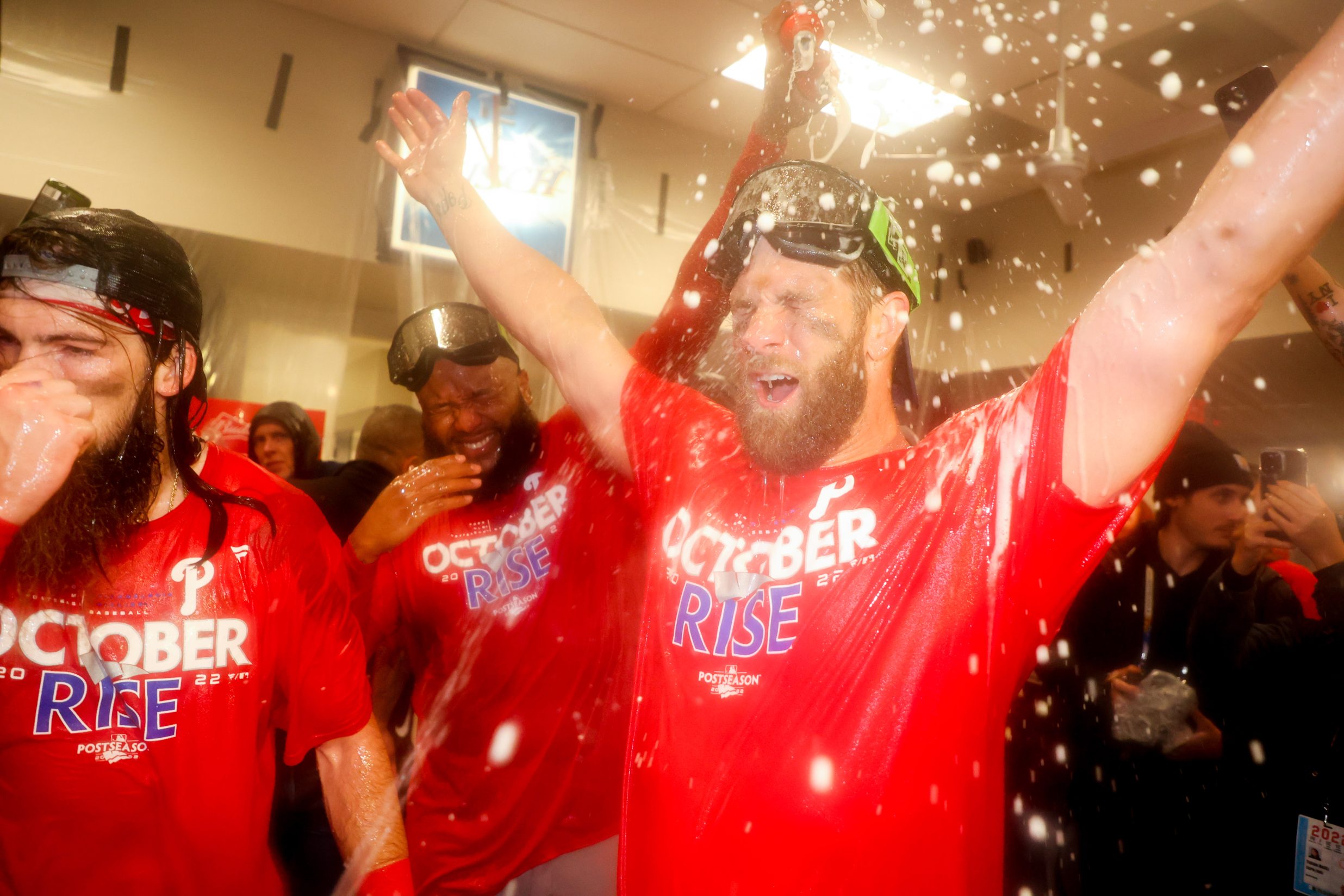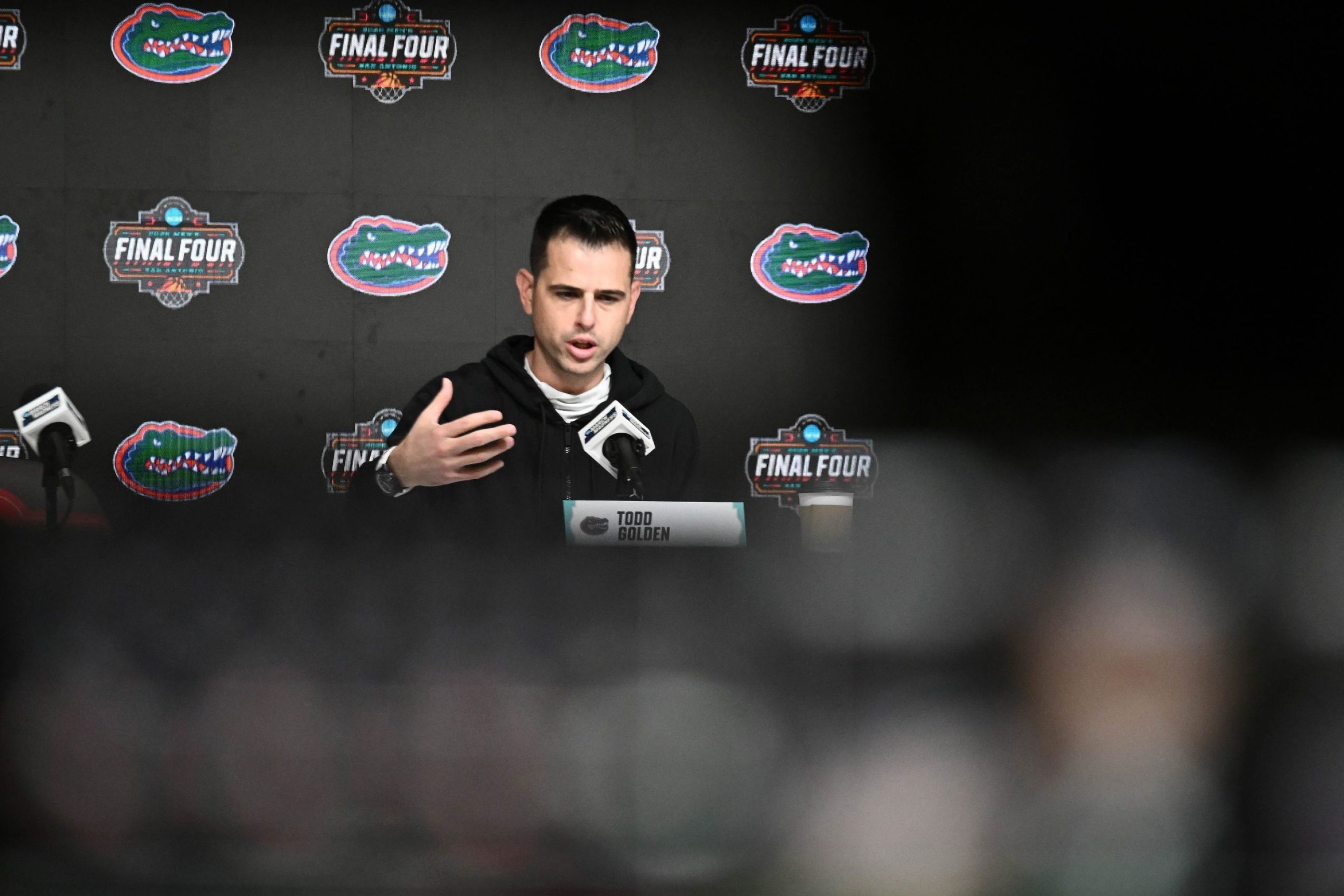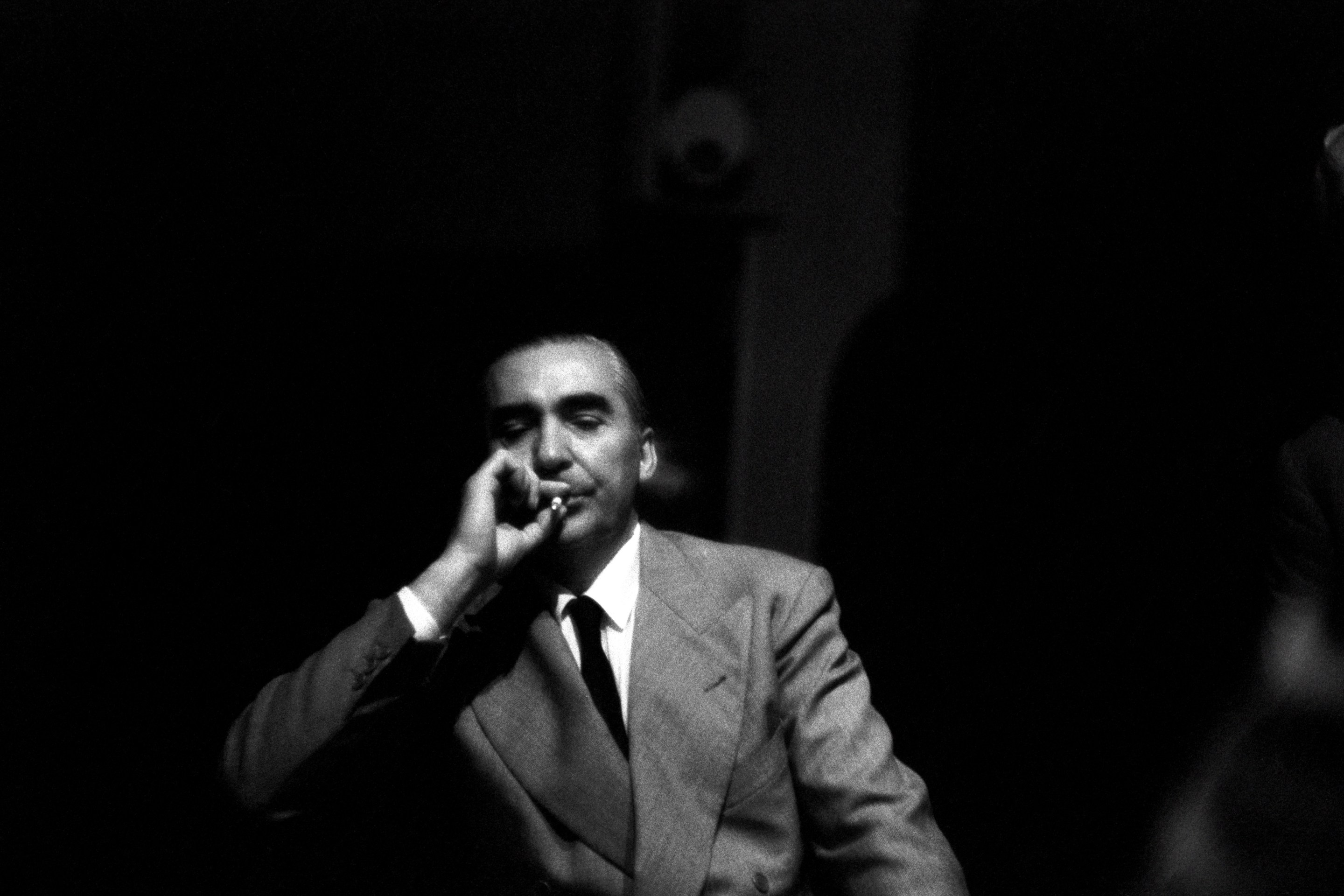POINT: Three Games Is Too Short To Be A Playoff Series, by Lauren Theisen
Our story begins with an inflated accomplishment:
Complete list of every manager in history to take over a team at least 7 games under .500 in midseason and go on to win a postseason series:
— Jayson Stark (@jaysonst) October 10, 2022
Rob Thomson, 2022 Phillies
End of list
It sounds pretty impressive at first! And certainly, the Phillies did show a real spark in the middle third of their season. But before you go yelling "Chump!" out the window as you drive by the house of every manager who ever took over a team at least seven games under .500 in midseason, there are two important caveats to consider. First, the 87-75 Phillies finished third in their division and third in the wild card. They were a whole 14 games behind the fourth-seeded Mets! In no other full season in MLB history, before 2022's expanded bracket, would that have been good enough to make the playoffs. (The Mariners should also feel similar shame for having celebrated the end of their playoff drought before they actually qualified for the ALDS.)
But that simple lowering of standards is not the point I'm here to argue. I take even more issue with the claim that the Phillies have, at this moment in the year, "won" a "postseason series," simply by virtue of taking two back-to-back games against St. Louis. Much like their qualification in the first place, in no full season in baseball history has it been possible to win a so-called playoff series in just two games. Only the brand-new best-of-three opening round now allows it.
There are two ways to process this information. The passive way would be to accept that sports change. Once upon a time there was only a best-of-seven (or nine) World Series between the best records in each league; now 12 teams end the regular season with a shot at a championship and can play as many as four opponents on the way there. Winning a title is a much different journey than it was back then, but many fans will claim that there has never been a perfect way to decide a "true" champion in a tournament format. Changing the setup, then, doesn't necessarily degrade the emotional meaning of victory or defeat. (The champagne celebrations have got to get tiring, though.)
The smart way to look at this development, however, would be to understand those technical blink-and-you-miss-them series wins as the illusions they really are. They can be a key that gets teams closer to their ultimate goal, but as postseason accomplishments they deserve to be scoffed at. In the same way that the coming attractions are not part of a movie, and a foreword is not part of a novel, the wild card round shares a superficial similarity to the postseason but remains unavoidably lesser—a prologue or an appetizer before the real thing.
Winning a seven-game series against a strong adversary—even winning a five-gamer—takes a beefy lineup, a versatile and resilient pitching staff, and a shrewd managerial mind. (Luck helps too, of course.) These series experience the emotional shifts that come from playing in more than one ballpark, the drama of the game's best arms exploring their limits, and perhaps most importantly, the possibility that a team that started rough could make adjustments and find a way back. By contrast, other than well-timed hits and a couple of strong starts from your top pitchers, I don't really know what it takes to win a three-game series. They just amp up the randomness to 11 and let the lord sort it out, delivering excitement but few strategic lessons or satisfying superiority. Hell, even the Nationals managed to take two in a row off the Dodgers this year, so what does it even mean when a team ends another's season that quickly?
I'm not saying you have to ignore the manufactured drama of the new wild card weekend. I'm not encouraging you to taunt that guy in a Padres jersey by telling him he's a fraud whose team hasn't won shit yet. But even if you've had some fun over the last few days, we all know, deep down, that the real playoffs start now.
COUNTERPOINT: What?, by Maitreyi Anantharaman
What are you talking about? I think you’re sad that dorky Jeff McNeil couldn’t even bloop a single into left against the Padres on Sunday night and are feeling very upset. Because I pity you, and only because of this, I will respond. Truthfully, though, I thought you’d have moved on to some more interesting stage of grief by now.
Three games is a series. The three-game series is one of the most basic, recognized and cherished units in baseball. Why should this be true of three games in the regular season and not three games in the postseason? To paraphrase Mrs. Manson Mingott, it was a series when Chris Bassitt struck out seven Brewers in June and it’s got to stay a series now that he's covered you with shame.
Winning a three-game series requires no less managerial shrewdness. If managing doesn't matter in three games, why did every Mets fan flip out when Buck Showalter left Edwin Díaz in after sitting for 40 minutes with a five-run lead, or whatever? I think it was because they understood the unique pressures of the series and the foresight required to win one of these things. You’ll have trouble convincing me that what they felt was any less intense or urgent than what is felt in a longer series. Let’s say that three-game series and five-game series do come with distinct demands and emotional beats—I don't really buy that, but maybe I could, with the travel and different crowds and all. Are they actually lesser demands? “Well-timed hits and a couple of strong starts from your top pitchers” seems a lot like "having a good lineup, good pitching and good bullpen management" to me. I am sympathetic to the idea that the postseason should allow teams to recover from rough starts and make adjustments—it is why I argued against single-elimination rounds in the WNBA playoffs. But I think that argument is poorly applied to baseball. It's inherently a game of adjustments, of discrete and repeated matchups within a single game. Players already adjust from one at-bat to the next; really, they adjust from one pitch to the next.
What I can't buy is that the degree of randomness involved in a three-game series is meaningfully higher than the degree of randomness involved in a five- or seven-game series. Consider the denominator it would take to produce a truly meritocratic postseason, shorn of devil magic. It's a lot higher than three or five or seven, and it surely makes the difference between the three look puny in relation. The randomness is always at 11 in the playoffs. Recall, for instance, who the reigning best-of-seven NLCS MVP is. Eddie damn Rosario! Is it always satisfying to watch playoffs like this? No, certainly not. But postseason baseball is chiefly meant to entertain. If you are not entertained by Trent Grisham going Rosario Mode, that is a you problem.
I struggle with randomness in sports and outcomes I cannot understand, and it helps me to look at things this way: Teams needn't surrender completely to luck and randomness. The postseason asks everyone to make their own luck—as much as is possible within fate's cruel confines. Build a roster that is as good as it can be, develop players that are as good as they can be, battle through your at-bats so you get the best pitches you can. Sometimes it will be enough. Sometimes you can, like the Mariners did, position yourself perfectly to pounce when the stars align. Sometimes it won't. In conclusion, you are so, so, unbelievably wrong and should cry more.






